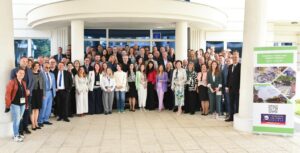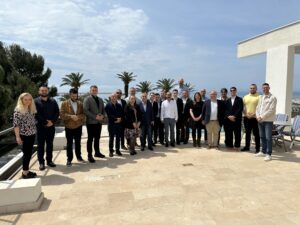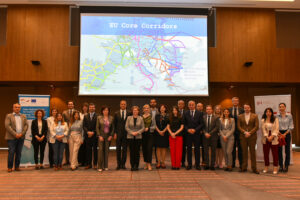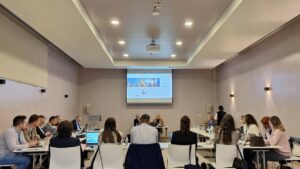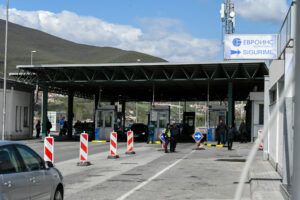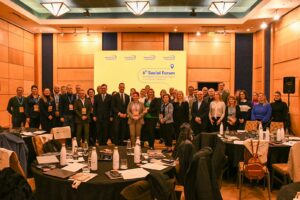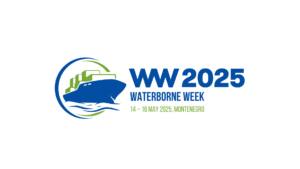PODGORICA – Aimed at enhancing safety practices surrounding the transport of dangerous goods (TDG) across the Western Balkans, the University of Montenegro hosted a meeting within the DG TRANS Project – a collaborative effort funded by Erasmus+. The event, held on 23 April, brought together key stakeholders from academia, industry, and regulatory bodies to exchange best practices in TDG training.
In her intervention during the meeting, Transport Community’s Desk Officer for Transport of Dangerous Goods, Dr. Monica Stanciu, emphasised the critical role of international cooperation in navigating the complex landscape of competency requirements, crucial for both authorities and academia.
With the transport of dangerous goods posing risks to people, property, and the environment, the importance of heightened risk perception and safety awareness of stakeholders across all transport modes was underlined in the meeting.
The Western Balkans academia, aligning its curricula with EU legislation, is crucial for preparing a skilled workforce to tackle tomorrow’s challenges, especially amidst demographic shifts and educational transformations, such as the digitisation of learning and work. During the event, discussions also explored industry needs regarding petroleum products and the readiness of regional universities to the above-mentioned skilled workforce.
ERASMUS+ support for the DG TRANS Project signals a commitment to fostering collaboration and knowledge exchange, vital for ensuring safety standards align with international norms.
As the project progresses, academia representatives gathered in the project consortium are invited to continue sharing insights and outcomes with regional authorities and the wider international community as the project activities are aligned with ongoing efforts to standardise driver examinations, recently approved by the UN body overseeing ADR regulations.






